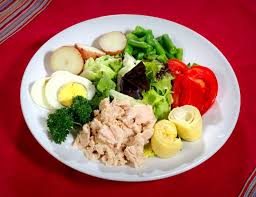Sep 8, 2017Team Effort
When it comes to teaching high school athletes about nutrition, the athletes aren’t the only ones you need to reach. Their eating habits are heavily influenced by their families.
Therefore, it’s important to include parents in the educational process. If an athlete’s parents are on a low-carb diet and dinner is chicken and salad, they need to know that is not going to provide adequate fuel for a tired, hungry athlete coming home after practice.
Any sport nutrition presentations for student-athletes should also be open to parents, who should be strongly encouraged to attend. You may want to talk with your athletic director to see if it can become a mandatory meeting for parents. An ideal time may be at the yearly team meeting when students and parents meet with coaches. You can also use this forum to remind the booster club to consider healthy nutrition when it chooses snack items for practices and suggest pre- and post-games meal ideas.

Parents of athletes with medical or weight issues might need more one-on-one help and expertise than you can provide. For these parents, it’s important to keep a contact list of local dietitians, therapists, and physicians who specialize in eating and weight issues.
Since many high school athletes eat lunch and even breakfast at school, you also need to bring the food service staff on board. How many times have your athletes told you they didn’t eat lunch because they didn’t like the cafeteria’s offerings? Consider arranging an after-school meeting with student-athlete representatives, yourself, and someone from food service.
Ask the food service staff to collaborate in your efforts to educate athletes. Together you could develop informational “table tents” to put on cafeteria tables. Another great tactic is color coding cafeteria food choices so athletes can easily find the high-carb, low-fat items best for performance.
The collaborative approach is especially important with regard to hydration. It takes a team to properly hydrate an athlete. A letter from the athletic director, coach, training staff, and school nurse can be drafted to persuade late-day teachers to allow student-athletes to hydrate during class. This is much less disruptive than being excused to go to the water fountain. Include some information about the dangers of dehydration to both physical and mental performance. Well-hydrated students perform better in the classroom and on the field.
Also consider making the school nurse, health teachers, or a parent who is a dietitian part of your team. Ask teachers if they would allow student-athletes to have something to eat and drink during the class period before practice. Encourage them to hang posters in the office or classroom with reminders on the importance of fueling and hydrating for sport. See if the dietitian will write an article for your athletes, or help you develop a list of sport-friendly pre-game meals and pre- and post-practice snacks.
Last but not least, student-athletes who have gotten the message and understand the importance of proper nutrition can be your best allies. Encourage such athletes to talk about nutrition with their teammates, stressing the message that eating well is the responsibility of each athlete for the success of the team.



